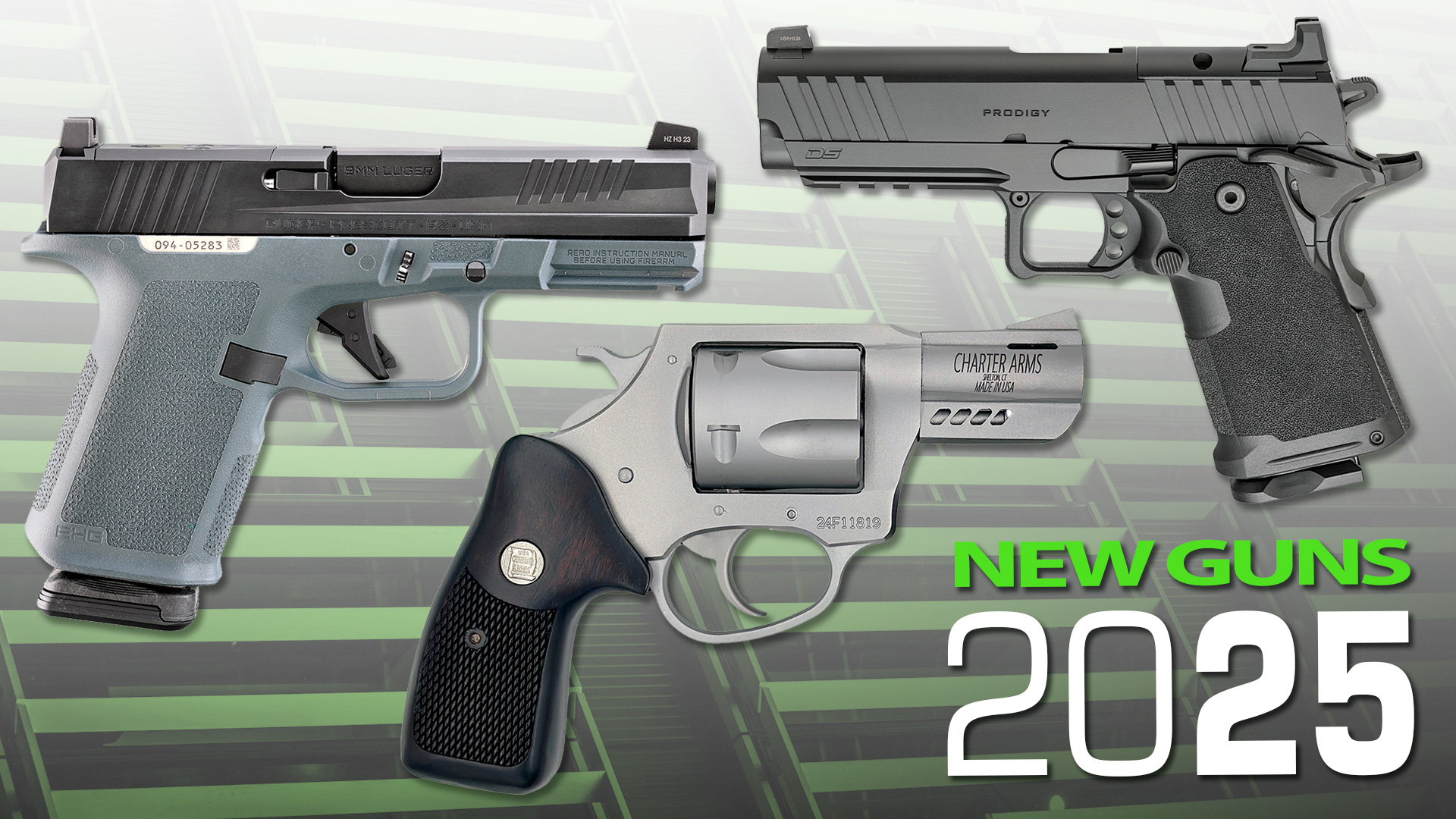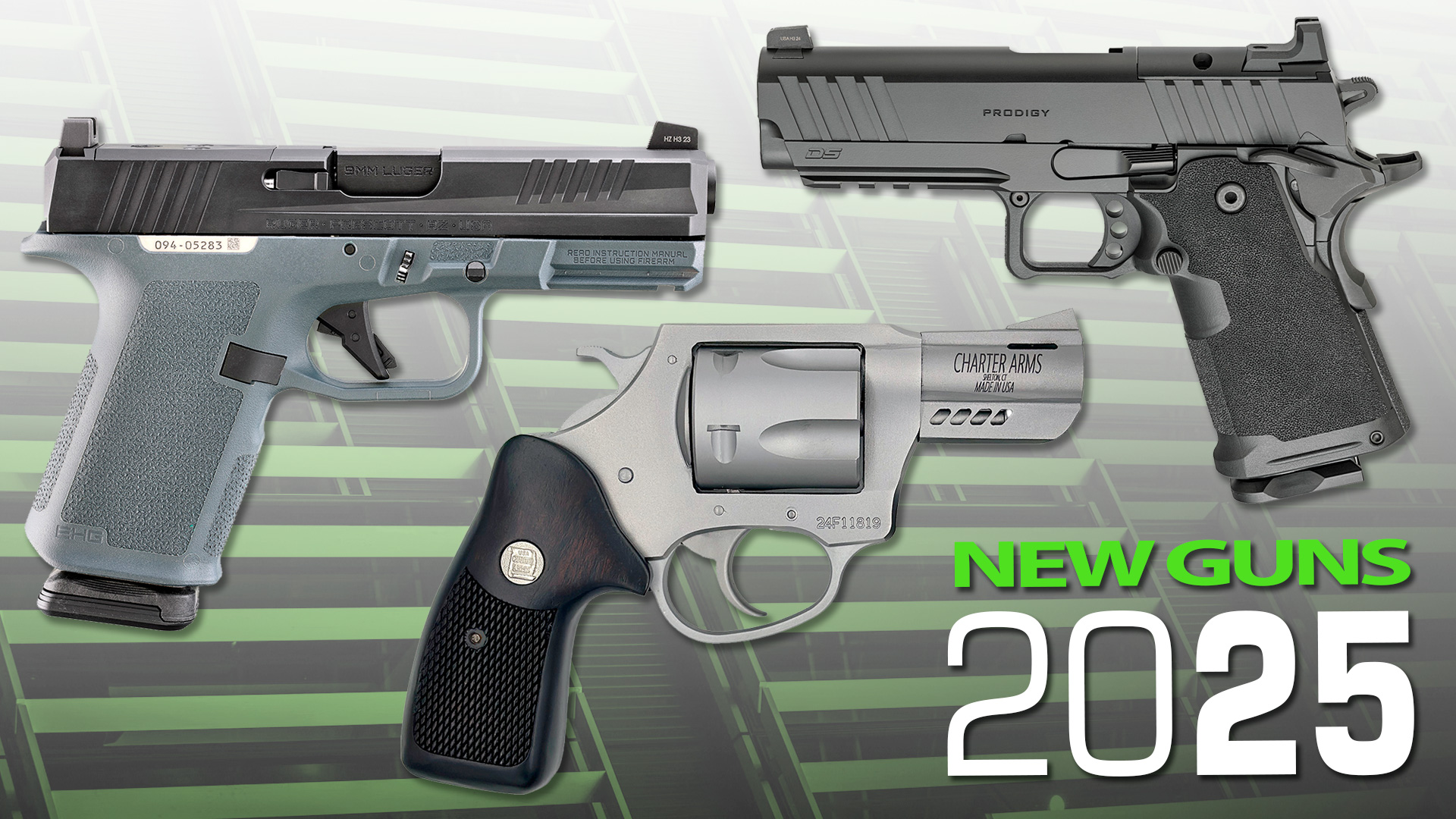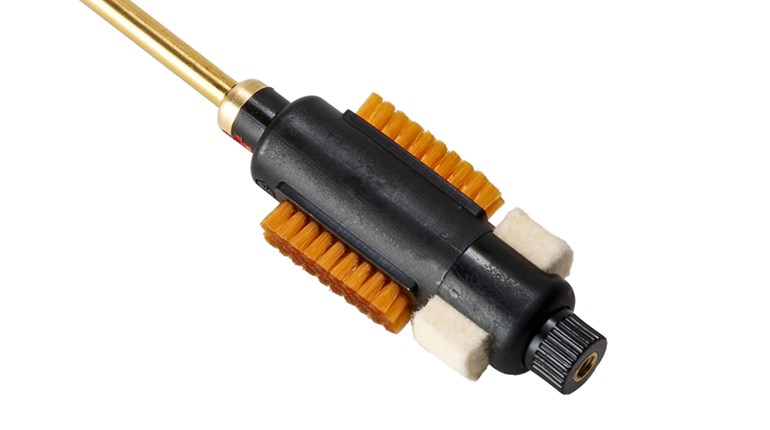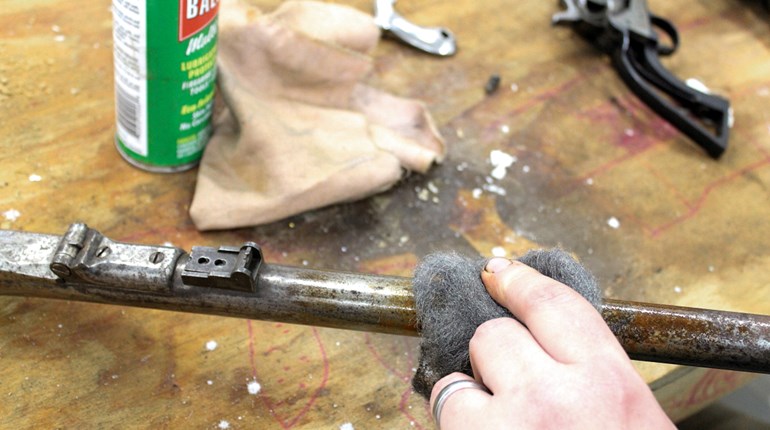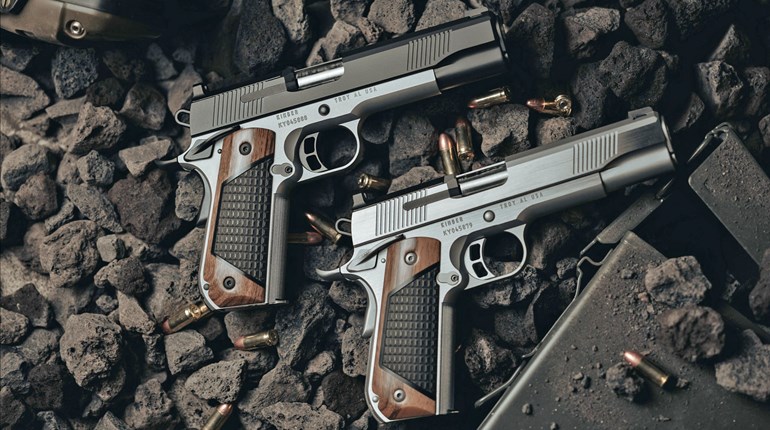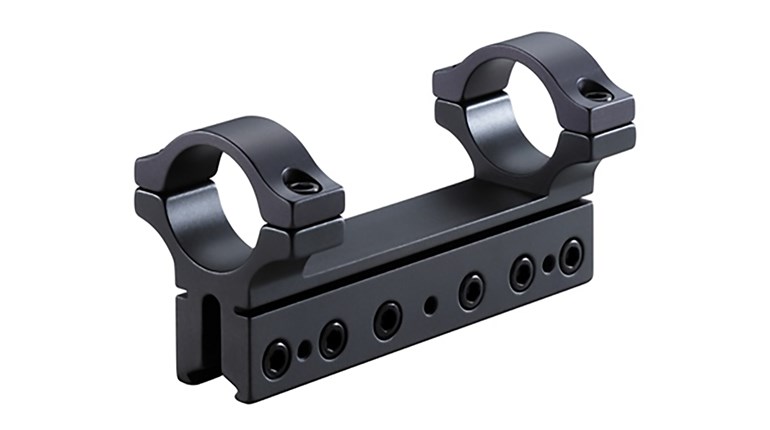
Not all service pistols reach their end of service life as did this 1911 that saw action in World War II.
I am a veteran and have an interest in service firearms and how they perform from initial issue until they are no longer considered serviceable. I am also a retired law enforcement officer who was involved in the transition from revolvers to semi-automatic pistols in the 1990s, and the procurement of new pistols every five to seven years until I recently retired. Why do the law enforcement pistols seem to reach the end of their service life much quicker than the military pistols that seem to be identical? Is there a secret standard I don’t know about? None of the owner’s manuals that I have read mention service life. Is there really a service life to modern handguns, or is this just a ploy for the manufacturers to sell more guns?
George Dawson, Kansas City, MO
Guns in general are much like motor vehicles. Given proper maintenance and reasonable care in operation, they will last a long time. How long varies with the parameters and protocols set forth by the end user, usually with some guidance from the manufacturer. Unfortunately, handguns don’t have an odometer to register the actual number of rounds a gun has fired. This makes round count speculative, with the exception of tests performed in controlled conditions. The secret standard that you mention really doesn’t exist. Military and law enforcement communities set their own standards as they apply to their needs. If the gun passes the standard it may be adopted and if not, it won’t.
To give you some additional perspective, I’ll relay three different instances that I have direct knowledge of involving the SIG Sauer P228. The P228 is to many users the gold standard in a 9 mm compact pistol. It has been in service in the military as the M11, and with many federal, state and local law enforcement agencies, as well as the discriminating private citizen who wanted to own a similar high-quality handgun.
In instance number one, the P228 was adopted by an unnamed federal agency that was known for its exclusive use of hot ammo. Needless to say, the longevity of the pistols suffered in many ways. According to the agency gunsmiths and armorers, the guns were retired in the neighborhood of 3,000 rounds due to the sensitive nature of their use where failure was not an option.
Instance number two involved the U.S. Military’s M11 Compact Combat Pistol, which was little more than a P228 with a short trigger. Like the Beretta M9, the M11 was designated to have a service life of 5,000 rounds. Multiple guns were tested by the military to 5,000 rounds with military ball ammunition with no parts replacement and minimal stoppages. Having passed the military standards in exemplary fashion, the P228 was adopted as the M11 Compact Combat Pistol in a slightly modified version.
The third instance involved an early P228 that was part of a set of pistols initially put in service in July of 1991 at the SIG Sauer Academy as loaner guns. Tens of thousands of +P frangible and conventional duty ammunition were put through these guns over the years of their usage. Other than cleaning and lubrication at the end of the shooting day and replacing the recoil spring at a guesstimated 5,000 rounds, little else was done to these guns outside of an occasional small part to be replaced when lost or broken.
During a detailed disassembly and inspection of the old P228 in September of 2017, a small crack was discovered in a non-critical area of the pistol, sealing its fate for end-of-service destruction. This gun had been in continuous service for 26 years with an untold number of rounds through it and was still serviceable but for a small crack that most people would consider insignificant.
The reality is that the service life of a pistol is often governed by technology as opposed to actually “wearing out.” With proper maintenance, recommended parts replacement and the use of recommended ammunition, the modern semi-automatic pistol should last for generations.
Give manufacturers credit for developing new guns and innovative features for older models to keep their sales up. Service life is almost never mentioned because of the infinite amount of variables that affect it. A manufacturer would rather sell a gun because of a technological improvement as opposed to customers replacing an inoperable firearm.










